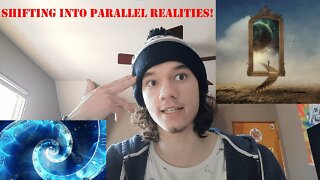Are We Never Going to Die, Confusion with Quantum Immortality
In a vast universe, shrouded in mysteries, the concept of mortality has always intrigued and perplexed humanity. As we delve into the realms of quantum mechanics, a branch of physics that challenges our understanding of reality, the notion of immortality emerges, casting a shadow of confusion upon our mortal existence.
Quantum immortality is an intriguing hypothesis that stems from the peculiarities of quantum mechanics. It suggests that, in a multiverse where all possible outcomes of quantum events are realized, our consciousness could persist indefinitely, experiencing only the realities in which our survival is ensured. This concept raises profound questions about the nature of death and the limits of our mortal existence.
At the core of quantum immortality lies the idea that our consciousness is entangled with the quantum states of our physical bodies. According to the Copenhagen interpretation of quantum mechanics, a particle exists in a superposition of all possible states until it is observed or measured, collapsing into a single state. If we extend this principle to the realm of consciousness, it implies that our subjective experience is entangled with the quantum states of our brains.
In the context of quantum immortality, death becomes a probabilistic event rather than an absolute certainty. Each time we face a life-threatening situation, the many-worlds interpretation posits that our consciousness branches off into multiple copies, each experiencing a different outcome. From our subjective perspective, we will always find ourselves in the reality where we survive, while the versions of us that perish continue to exist in parallel realities.
However, the concept of quantum immortality is not without its limitations and controversies. It relies on the assumption that consciousness is fundamental and indestructible, which remains a subject of philosophical debate. Moreover, the hypothesis does not offer a clear explanation for why we perceive a continuous stream of consciousness, rather than fragmented experiences across countless realities.
Furthermore, the very nature of the multiverse and the mechanisms governing it remain speculative. The existence of an infinite number of parallel universes, each harboring different versions of ourselves, is a fascinating idea, but one that currently lacks empirical evidence.
While quantum immortality presents a captivating avenue for exploring the mysteries of our mortality, it is crucial to approach it with a healthy dose of skepticism. The boundaries between scientific hypotheses and philosophical ponderings can become blurred, and it is essential to distinguish between the two.
In the grand scheme of the universe, our mortality remains an undeniable aspect of our existence. Death, as we perceive it, is an integral part of the cycle of life, allowing for growth, renewal, and the evolution of consciousness. The enigma of our mortality continues to inspire profound philosophical and scientific discussions, fueling our curiosity and driving us to seek a deeper understanding of our place in the cosmos.
So, as we navigate the intricacies of quantum mechanics and contemplate the mysteries of the multiverse, let us embrace the beauty of our mortal existence. For it is through the finite nature of our lives that we find meaning, purpose, and the appreciation of the fleeting moments that make our journey truly extraordinary.
-
 10:59
10:59
The Pawn
1 year agoQuantum Immortality Explained...
2474 -
 4:18
4:18
Book of Valis
1 year agoQuantum Immortality Explained
16 -
 13:28
13:28
DrNobody
4 months agoImmortality Is Closer Than You Think
46 -
 17:47
17:47
JessieJohn
11 months agoDEATH, True IMMORTALITY and The Deathless
10 -
 10:17
10:17
ADVANCED CIVILIZATION
1 year agoDavid Chalmers - Virtual Immortality
7 -
 11:35
11:35
bigthinks
10 months agoThe physics of time, entropy, and immortality | Sabine Hossenfelder
193 -
 3:00
3:00
Infinite Immortality
2 years ago $0.02 earned#17: THERE IS NO PLAUSIBLE REASON WHY THE BODY SHOULD DIE: The Way To Life And Immortality
107 -
 0:56
0:56
SpiritualSelfMastery
11 months ago✨FOREVER CONSCIOUSNESS 👻🌀#spirituality #life #death
222 -
 2:17
2:17
The1MoeYouKnow
1 month agoThe Entangled Lives of Eom and The Great Quantum Awakening Across The Multiverse
17 -
 5:26
5:26
This Quantum Life
2 years agoThis Quantum Life #77 - Healing You
214